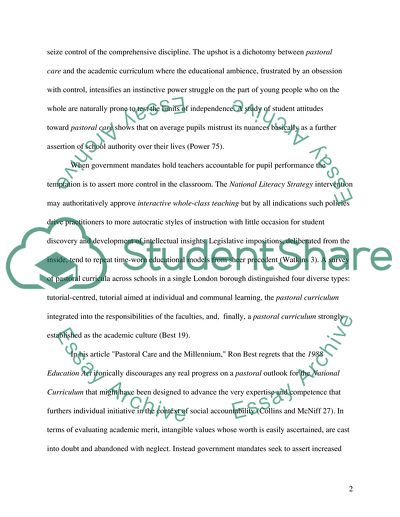Cite this document
(“How Can a School's Pastoral Structure Support Pupil Achievement Essay”, n.d.)
Retrieved from https://studentshare.org/education/1536695-how-can-a-schools-pastoral-structure-support-pupil-achievement
Retrieved from https://studentshare.org/education/1536695-how-can-a-schools-pastoral-structure-support-pupil-achievement
(How Can a School'S Pastoral Structure Support Pupil Achievement Essay)
https://studentshare.org/education/1536695-how-can-a-schools-pastoral-structure-support-pupil-achievement.
https://studentshare.org/education/1536695-how-can-a-schools-pastoral-structure-support-pupil-achievement.
“How Can a School'S Pastoral Structure Support Pupil Achievement Essay”, n.d. https://studentshare.org/education/1536695-how-can-a-schools-pastoral-structure-support-pupil-achievement.


